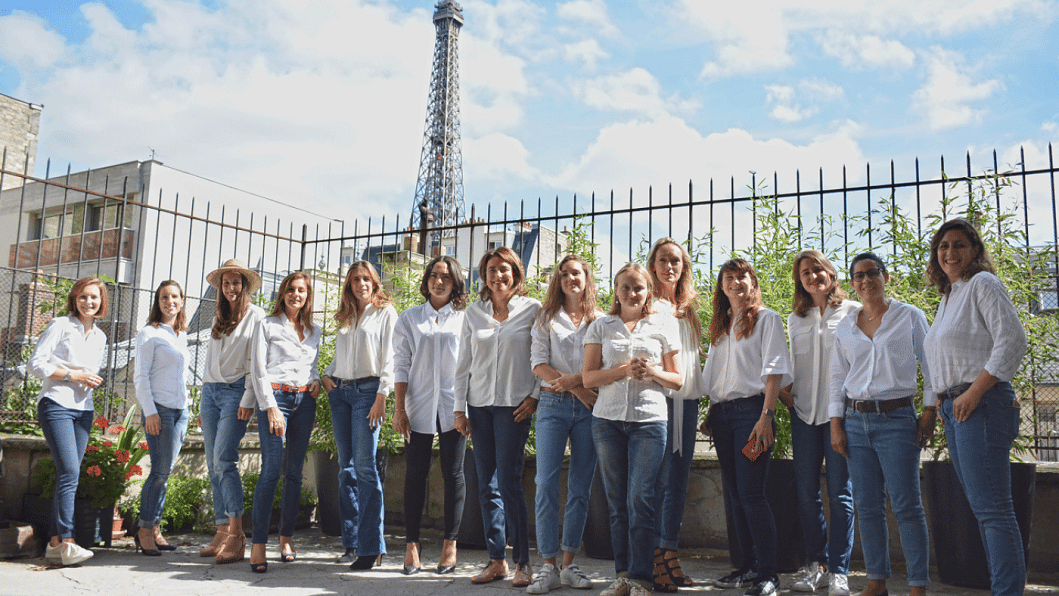Women in innovation: There is still room for progress…

At the end of August 2017, an article in the French economics and business magazine Capital hit like a bombshell. This special edition, dedicated to French start-ups, didn't go unnoticed. Not a single female was among the line-up of highly promising entrepreneurs; those with the potential to make it among the heavyweights at international level. Social media had a field day with the story, creating a buzz that was spurred on by feminist associations, amongst a chorus of angry jeers.
Delphine Rémy-Boutang, founder of digital agency The Bureau and of the Journée de la Femme Digitale (Digital Women's Day), didn't take long to respond. Fourteen French women entrepreneurs posed together for the weekly business magazine Challenges, under the headline, "Female start-up founders fight back." They quickly struck again with a second group photo, this time featuring 80 women innovators on the steps of the Bourse de Paris (the city's stock exchange), published by the specialist innovation site FrenchWeb.
The story is significant in revealing the place the so-called "weaker sex" is assigned on the innovation scene, and France is far from being exceptional. Recently, two American female entrepreneurs, Kate Dwyer and Penelope Gazing, co-founders of e-commerce marketplace Witchsy, revealed that they had had to create a fictional male co-founder to ensure that their ideas were taken seriously.
A study made by Harvard Business Review also speaks volumes. Over a two-year period, investors' conversations were recorded in different countries. In Sweden—a country considered to be among the most progressive in the world—a young man was almost systematically presented as being "young but promising" whereas a woman in the same position was labelled "young and inexperienced".
Paris, European capital of female entrepreneurship
According to the 2015 Global Start-up Ecosystem Ranking by Compass, women make up only 8 percent of those at the head of start-ups in France. It's not a lot, even if the proportion is much higher in Paris (21 percent), which makes the city the European capital of female entrepreneurship (the European average stands at 17 percent). Real progress is being made, but slowly: when Caroline Ramade founded the female business incubator Paris Pionnières twelve years ago, the figures were no higher than 2 percent and 5 percent respectively.
"The world of innovation; presented as being ahead of its time, actually encounters the same difficulties as other sectors", Ramade said. "We need to acknowledge the fact that women represent just 8 percent of investors, and those who are in the profession tend to behave like men," Ramade added. While female founders of start-up companies tend not to have too much trouble in launching their first funding round, things become more complicated afterwards, notably when they start planning to get listed on the stock exchange.
69 percent of young female graduates want to start their own businesses
Initiatives are popping up to encourage female innovation. Delphine Rémy-Boutang recently launched the JFD Connect Club; the first networking club solely for women in digital. Another such initiative is the Business With Attitude/Madame Figaro Prize, whose first editing in March 2017 accompanied six start-up founders. Claude Tresoir, founder of Magic Makers, which carries out computer coding workshops for children was crowned the winner.
As 69 percent of young women aspire to be entrepreneurs business schools have woken up to this trend and are starting to launch female entrepreneurship programmes, following the example set by ESSEC Business School here in France.
Women are very active in the domain of social innovation
One problem remains: a lack of female role models. GAFA's top-level women, like Sheryl Sandberg, Chief Operating Officer of Facebook, are so powerful that young girls struggle to identify with them. Yet whilst women are under-represented in tech innovation (with the exception of artificial intelligence), they are very active in developing innovation in the environmental and social solidarity fields. Pioneers include Joséphine Goube (Techfugees) and Judith Aquien (Thot), committed to helping refugees, Charlotte de Vilmorin (Wheeliz, disabilities), Juliette Franquet (Love your waste, recycling).
Other female figures are stepping into the spotlight, such as Camille Rumani, co-founder of VizEat; one of top three on the App Store in 2016. Apple boss, Tom Cook even dined with the founder in her home during his visit to Paris in February 2017 thanks to the app. Marie-Vorgan Le Barzic, CEO of Numa Paris; a start-up incubator born out of 'Silicon Sentier,' has established herself as a leading figure on the start-up scene. More and more women are starting to gain prominence thanks to their success: Rania Belkahia, founder of Afrimarket, Fanny Péchiodat, co-founder of MyLittleParis, or, among the younger innovators, Léonore de Roquefeuil, CEO of the platform Voxe.org—which was a finalist in the Google Impact Challenge France 2015—and Marjolaine Grondin, CEO of HelloJam. A smooth handover to the next generation of women looks guaranteed.

 For all latest news, follow The Daily Star's Google News channel.
For all latest news, follow The Daily Star's Google News channel. 



Comments